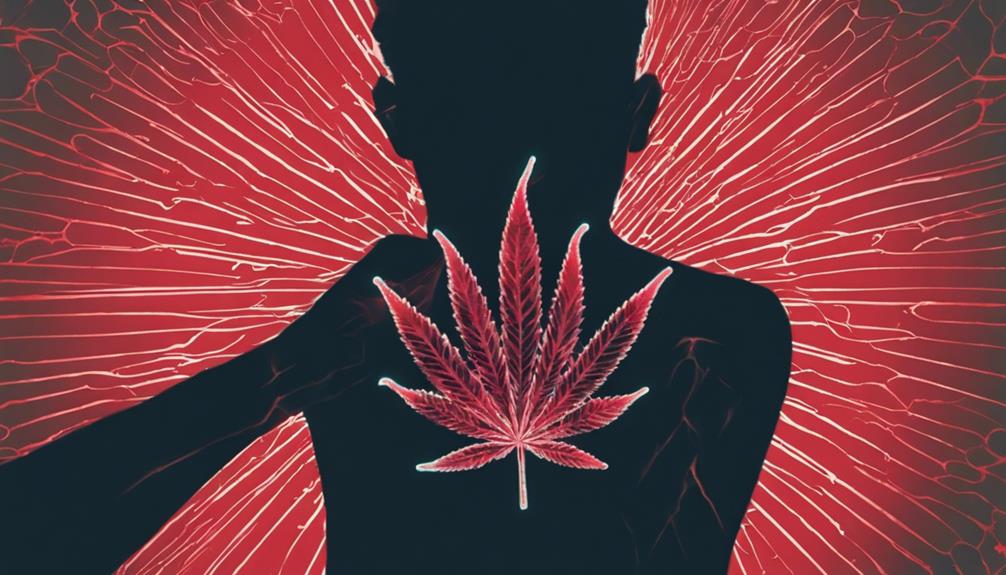You’ve likely heard about medical cannabis and its role in managing chronic conditions. But have you considered how it offers personalized care? With the ability to adjust dosages and cannabinoid ratios, physicians can tailor your treatment to your specific needs. This approach can enhance effectiveness, minimize side effects, and ultimately improve your quality of life. But how does this work exactly and what does it mean for the future of healthcare? Let’s explore this further.
Understanding Medical Cannabis

Dive into the world of medical cannabis, a promising yet intricate field of medicine. As you navigate this therapeutic landscape, understanding dosing guidelines and patient education are essential to providing effective treatment and care. In the domain of medical cannabis, one size doesn’t fit all; thus, dosing guidelines are highly personalized. It’s crucial that patients grasp this complexity.
The dosing process should start with the smallest possible dose, incrementally increasing it until therapeutic effects are achieved without adverse reactions. This “start low and go slow” philosophy minimizes risks and maximizes patient safety.
Additionally, choosing between THC dominant, CBD dominant or balanced products should be based on the patient’s condition, tolerance level, and personal preference.
Patient education is equally important. It’s crucial to inform patients about potential side effects, interactions with other medications they may be taking as well as the importance of maintaining a dosing diary. Encourage them to be proactive in monitoring their responses and reporting any concerns.
The Endocannabinoid System Explained
Let’s delve into the complexities of the endocannabinoid system, an essential component of human physiology. This system, recognized for endocannabinoid regulation, plays a significant role in maintaining the body’s internal balance or homeostasis.
The endocannabinoid system comprises endocannabinoids, receptors they attach to, and enzymes that break them down. Your body produces endocannabinoids as necessary, and they interact with cannabinoid receptors, primarily CB1 and CB2, that are spread throughout your body. This interaction prompts a response creating a calming effect on the nervous system which is vital for managing stress, regulating sleep and controlling appetite among other functions.
Medical cannabis interacts with this system by mimicking endocannabinoids offering potential therapeutic benefits. The active compounds in cannabis known as cannabinoids are structurally similar to endocannabinoids. When you consume cannabis these cannabinoids attach to the same receptors triggering effects that can provide relief from various symptoms.
Understanding the role of the endocannabinoid system enhances your ability to assist others offering them personalized care. This knowledge enables you to make informed decisions when recommending medical cannabis as a potential therapy for chronic conditions. Keep in mind however that cannabis isn’t a one-size-fits-all solution and individual responses may vary.
Medical Cannabis and Chronic Pain

Moving from the broader perspective of the endocannabinoid system we now turn our focus to the specific application of medical cannabis in managing chronic pain. You might be aware that chronic pain is a pervasive issue affecting millions globally. It’s a complex confluence of factors often stubbornly resistant to traditional pain management strategies.
Medical cannabis with its diverse array of cannabinoids provides a promising alternative. Its therapeutic benefits lie in the cannabinoids’ ability to interact with the body’s endocannabinoid system modulating pain perception. THC one of the primary cannabinoids has demonstrated significant analgesic effects.
Simultaneously, CBD another major compound acts as an anti-inflammatory agent further contributing to pain relief.
Moreover, cannabis offers a personalized approach to pain management. By adjusting the cannabinoid ratios and dosages you can tailor the treatment to fit the patient’s unique pain profile. This flexibility can enhance efficacy and minimize potential side effects.
Cannabis and Epilepsy Management
You might be surprised to learn that the use of cannabis in managing epilepsy has gained significant attention in recent years. Epilepsy research has shifted towards exploring cannabis’s potential role in seizure control. The plant’s chemical components specifically cannabinoids interact with your body’s endocannabinoid system which regulates various physiological processes including excitability in the brain.
CBD, a non-essential cannabinoid, has been at the forefront of this research. Its positive effects on seizure control have been documented in several studies. For example, a 2017 study found that CBD reduced seizure frequency by 39% in patients with Dravet syndrome, a severe form of epilepsy.
However it’s not a one-size-fits-all solution each person’s response to cannabis for seizure control can vary. Factors like specific type of epilepsy severity of seizures and individual physiological factors can affect treatment outcomes.
Therefore while cannabis shows promise for epilepsy management it should be approached as part of a personalized treatment plan consulting with healthcare professionals experienced in medical cannabis can guide you towards the most effective use of this tool in your epilepsy management journey.
Cancer Treatment and Cannabis

Could cannabis play a crucial role in cancer management? Recent cancer research suggests this might be the case. The active compounds in cannabis, cannabinoids, have shown potential in reducing tumor growth and causing cell death in various types of cancer.
Let’s explore the specifics. Cannabinoids particularly THC and CBD interact with your body’s endocannabinoid system influencing cell growth and death. This interaction can lead to the death of cancer cells while protecting normal cells which is why cannabis is gaining recognition in cancer treatment options.
However it’s not a one-size-fits-all solution. The effect varies depending on the type and stage of cancer as well as the individual’s overall health. This means that treatment needs to be personalized for each patient offering a more tailored approach.
Moreover, cannabis is known for its pain-relieving and anti-nausea properties which can greatly improve quality of life for those undergoing traditional treatments such as chemotherapy.
Cannabis Role in Mental Health
Beyond its potential in cancer care, cannabis also holds promise in the field of mental health. As you delve into research you’ll find compelling evidence supporting cannabis’s role in anxiety relief and depression management.
Preliminary studies suggest that compounds found within cannabis called cannabinoids may function similarly to your body’s endocannabinoids naturally occurring neurotransmitters that regulate mood. In specific doses these cannabinoids could potentially stabilize mood and alleviate the symptoms of anxiety and depression.
In one study a significant portion of subjects reported improvement in anxiety symptoms with cannabis use. It’s not magic but science: cannabinoids may reduce anxiety by interacting with the brain’s serotonin and vanilloid receptors much like traditional anti-anxiety medications.
Depression management with cannabis is a more complex issue given the condition’s multifaceted nature. However, research indicates that low doses of THC, the psychoactive component in cannabis, could potentially stimulate serotonin production providing an antidepressant effect.
Of course more research is still needed to fully understand these relationships and optimize treatment protocols. As future studies unfold cannabis’s role in mental health care could become even clearer opening new avenues for personalized medicine.
Personalized Care With Medical Cannabis

Within the field of medical cannabis personalized care is emerging as an important concept. It’s no longer just about using cannabis for relief but about how it’s used the dosage and individual unique health circumstances.
Dosage management is a critical part of this customized approach. It’s about finding the right balance for you too little may not provide desired relief while too much could lead to unwanted side effects. It’s important to work closely with your healthcare provider to establish a suitable dosage.
Individualized treatment another key aspect of personalized care emphasizes importance of tailoring treatment plans to suit each person’s unique needs. Your medical history current health condition and personal preferences all play crucial role in determining most effective treatment plan.
For example some might prefer a higher CBD to THC ratio while others might find a more balanced ratio more beneficial.
Legal Aspects of Medical Cannabis
You might wonder about the legal implications of using medical cannabis. It’s essential to understand the legal regulations surrounding its use as they vary widely from place to place. In some jurisdictions, medical cannabis is fully legalized, while in others it’s only decriminalized or still completely illegal.
Knowledge is power and patient education is a vital aspect of maneuvering through these legal waters. It’s your responsibility to know and comprehend the laws in your area before you consider medical cannabis as a treatment option. This includes understanding the qualifying conditions possession limits and whether home cultivation is allowed.
Additionally, the legal regulations often dictate the type of cannabis products available to you. Some laws may restrict THC content or only allow certain forms of consumption.
Also worth noting even in areas where medical cannabis is legal employers may still enforce zero-tolerance policies. Understanding these legal implications is crucial part of informed decision-making.
The legal landscape for medical cannabis is complex and constantly evolving staying informed can help you navigate this field with confidence ensuring that you’re using cannabis safely and legally.
Possible Side Effects and Risks

Understanding the legal complexities of medical cannabis is just one aspect when considering this treatment option. You should also be aware of potential side effects and risks that may arise particularly regarding long term effects and dosage control.
While research on long term effects of medical cannabis is ongoing some studies suggest potential risks. These may include dependency cognitive impairment and psychiatric disorders. It’s essential to contemplate these potential outcomes when evaluating whether medical cannabis is the right choice for your patient’s chronic condition.
Dosage control is another consideration. Unlike traditional pharmaceuticals, the concentration of active compounds in medical cannabis can vary making it challenging to establish a consistent effective dosage. Overdosing can lead to unwanted side effects like dizziness paranoia or even hallucinations.
Conversely under-dosing could diminish the therapeutic benefits of the cannabis.
Future of Cannabis in Health Care
Several advancements in the medical field have placed cannabis at the forefront of a healthcare revolution. With integration of health technology we’re now witnessing dawn of new era where cannabis isn’t just an alternative but a mainstream treatment option.
Future health systems are poised to harness this potential through data-driven personalized care. As a healthcare professional you’ll soon have access to advanced tools that use real-time patient data to recommend cannabis strains and dosage allowing you provide more tailored treatment enhancing patient outcomes and ensuring patient advocacy at its finest.
Research into therapeutic potential of cannabis is also burgeoning new findings suggest that not only does it relieve symptoms but could also play role in disease modification offering you additional tool in your medical arsenal.
However it’s essential for you understand that legalization regulations and research surrounding medical cannabis are still evolving so staying abreast with these changes will enable you provide best possible care future of cannabis in health care is promising but it’s up to you navigate this emerging landscape with diligence compassion and scientific rigor.
Conclusion
In field of personalized care, medical cannabis shines as beacon hope amidst storm chronic pain epilepsy cancer yet not without its risks must navigate legal hurdles potential side effects juxtaposition relief against possible risks highlights importance individualized treatment plans as we explore future healthcare role cannabis seems promising offering tailored approach chronic disease management.
Now I’d like to personally invite you learn more about this fascinating field why not pay visit Fells Point Cannabis Docs in Maryland or pick up phone dial (410) 401-4200 you’ll find team ready willing help discover more about medical cannabis potential role your personalized treatment plan it’s warm inviting environment where your questions concerns always welcome so why wait your journey personalized care could start today.

